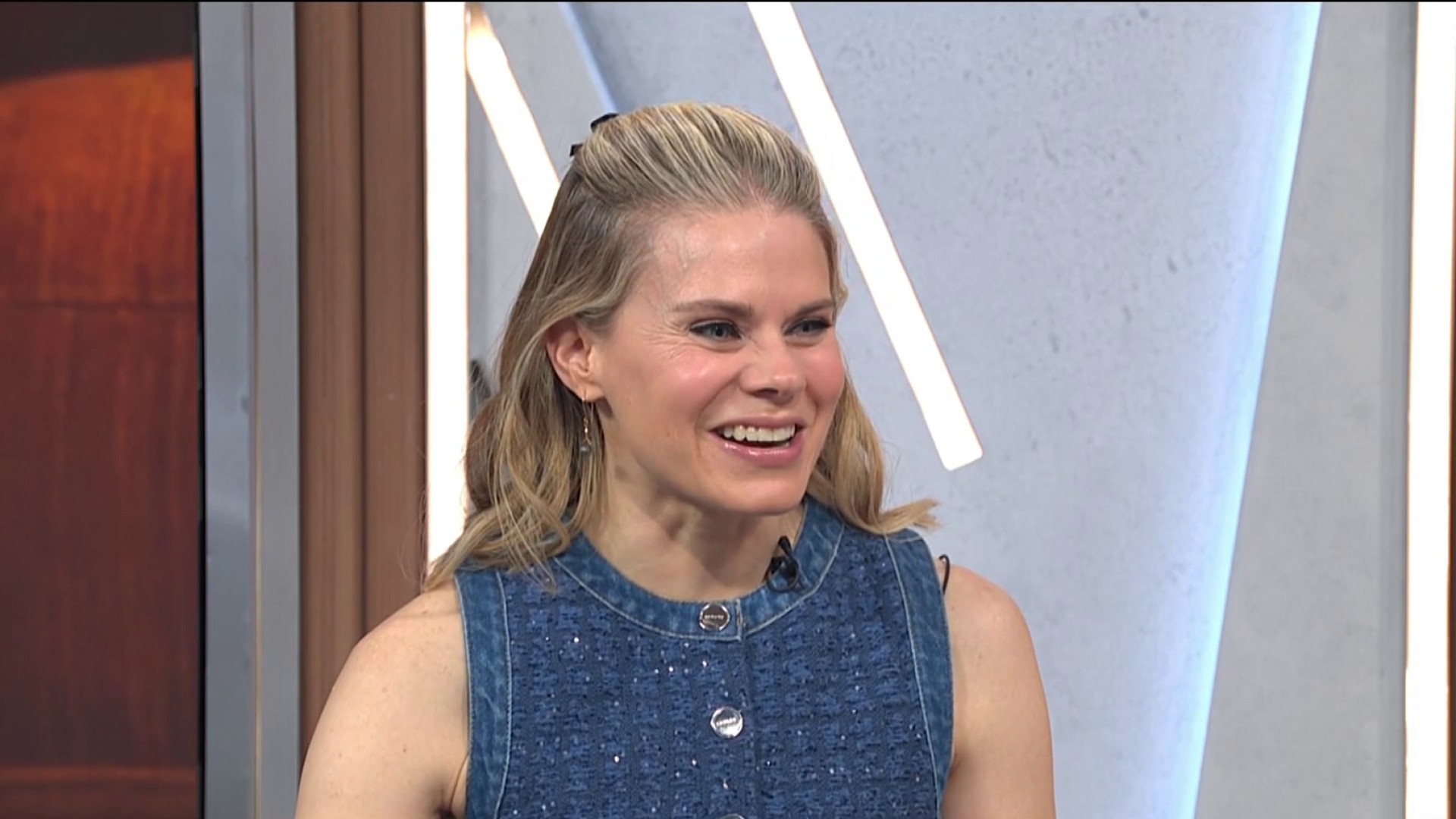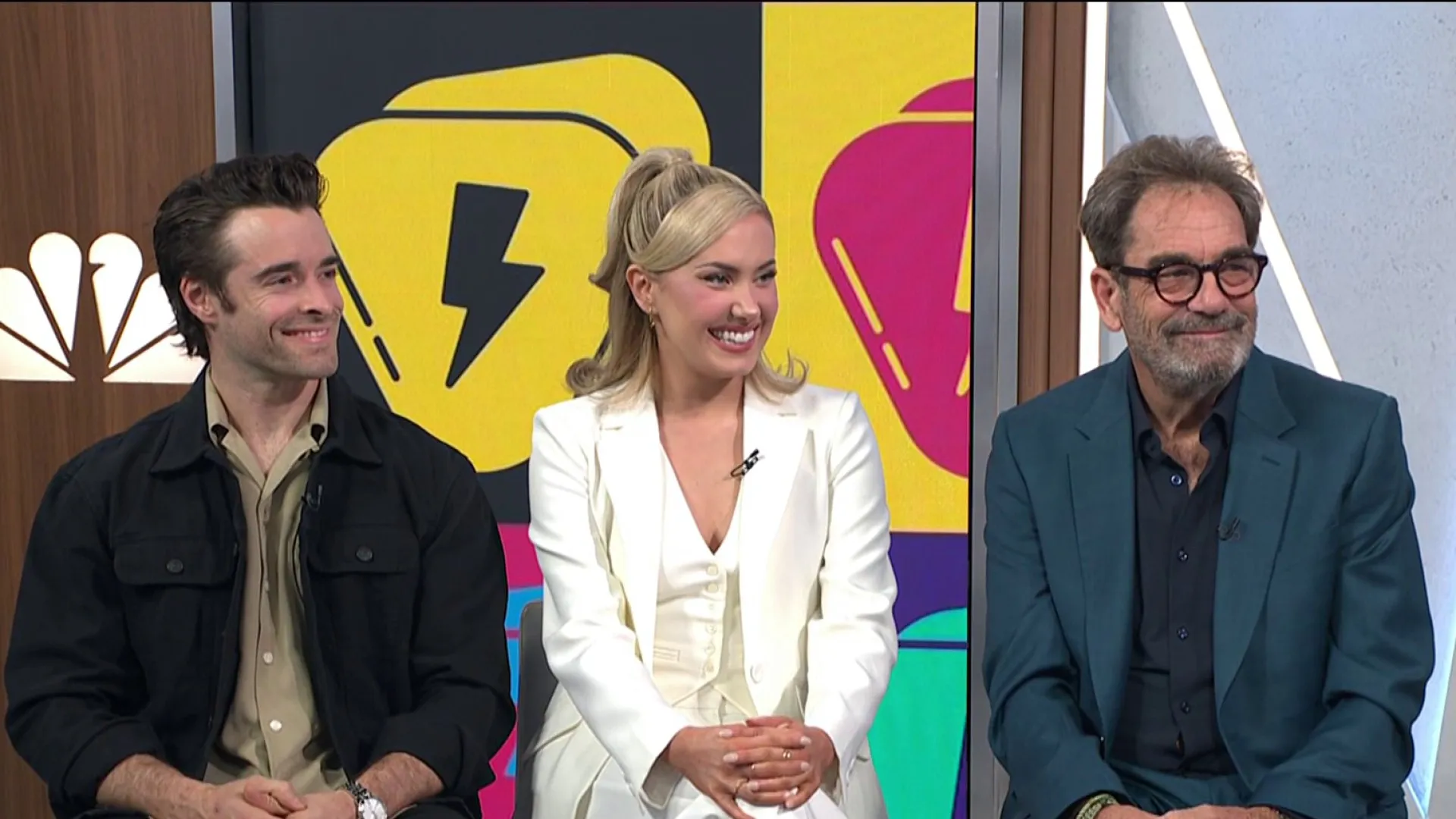Two-time Oscar nominee Bradley Cooper transforms so methodically into the disfigured Joseph Merrick at the start of “The Elephant Man,” now in the midst of a limited engagement at the Booth Theatre, that you barely realize it’s happening.
When you finally do, it kind of knocks the wind out of you.
Early in this cold and spartan revival, directed by Scott Ellis (“You Can’t Take It With You”), we see movie star Cooper staring ahead, shirtless, on a bare and sloping stage. To his left stands Alessandro Nivola, as Dr. Frederick Treves, the London physician who would become Merrick’s confidante and caretaker.
Between them hangs a projected image of the titular 19th-century Englishman, whose agonizingly human story has been chronicled in books, an Oscar-nominated film, and this, the often-revisited version by playwright Bernard Pomerance first staged in 1979.
In a clinical, if sobering monologue, Nivola will describe Merrick’s appearance—“The thumb was like a radish, the fingers like thick tuberous roots”—to be met in turn by a reaction from Cooper, who, for this example, twists one hand into an angry ball.
Doctor and patient alternate monologue and response, with regard to Merrick’s jaw, arms, chest and so on. After two or three minutes, the “American Hustle” and “Silver Linings Playbook” star is gone, and in his place is the former freak show attraction, a man with deformities that rendered his face incapable of showing emotion but who, as Cooper convincingly depicts, had a great capacity for joy.
Joseph Merrick (his first name is sometimes erroneously given as John) is thought to have been afflicted with a syndrome in which a mutant gene causes unusual growths on the body. His family would explain they believed the boy’s condition to have been caused by his pregnant mother’s collision with a fairground elephant. At one point in Merrick’s brief life, he signed on as a side show act, where he was exhibited as “The Elephant Man.”
Broadway
In Ellis’s efficient production, first staged two years ago in Williamstown with the same lead actors, the audience is, obviously, tasked with imagining Merrick’s disfigurement. Some theatergoers will suggest that you can’t look at Cooper and “not” see a movie star, People magazine’s 2011 “Sexiest Man Alive.” They’ll be wrong, but that’s beside the point. Cooper humanizes a man few at the time were willing to treat as human.
It’s potently evident in a simple wisecrack Merrick makes when Dr. Treves introduces him to yet one more nurse candidate who will flee upon beholding him: “Thank you for saving the lunch this time,” Cooper deadpans, commending the good doctor for taking a tray of food from the nurse before she entered the room.
Patricia Clarkson, the Oscar-nominated actress of “Pieces of April," is Madge Kendal, a famous thesp chosen by Dr. Treves to befriend Merrick because it’s thought she has the chops to disguise any “disgust.”

Clarkson, above, speaks with deliberation. It’s impossible to take your eyes off her when she’s on stage in Clint Ramos’s plum-colored Victorian ballgown and black-lace sleeves. Her ultimate metamorphosis—from an actress playing a part, into a woman who values her own emotions and is capable of reaching a man who has never known affection—is compelling, to say the least. Nothing she does (and she does plenty) feels like a stunt.
Nivola was an enigmatic and arrogant barrister in The Roundabout’s “The Winslow Boy,” and I may have hoped for something similar here. Treves was a deeply empathic character as embodied by Anthony Hopkins in the bleak, vastly different 1980 David Lynch film, which counted the doctor's journals—not Pomerance’s play—among its source materials (and starred John Hurt, in prosthetic makeup).
Rather, Nivola’s physician turns out to be even-keeled and pragmatic, an Englishman set in his belief that the sole goal of “treatment” for the untreatable Merrick is “normality … as far as is possible.” He does a convincing job making us see Freddie Treves as a fair and satisfied clinician, grateful for his own place in the universe.
The trio of leads are ably supported by a strong ensemble, including Anthony Heald as Merrick’s freak show exhibitor and, later, his religious guide. As the bottom-line focused hospital administrator, Henry Stram (wonderful in the recent “Fly By Night” at Playwrights Horizons”) make no bones about his interest in capitalizing on Merrick’s disfigurement, and his point of view comes across as simple pragmatism.
The dramatic tension in Pomerance’s play peaks in the first act, when Merrick is pursued through a train station by a mob determined to “rip him to pieces.” From there, it morphs into a character study. This “Elephant Man” will be best remembered for its deeply committed performance by Cooper, who joins a long line of actors—Hurt, Philip Anglim, David Bowie, Bruce Davison—to play him.
“The Elephant Man,” through Feb. 15 at the Booth Theatre, 222 West 45th St. Tickets: $99-$169. Call 212-239-6200.



